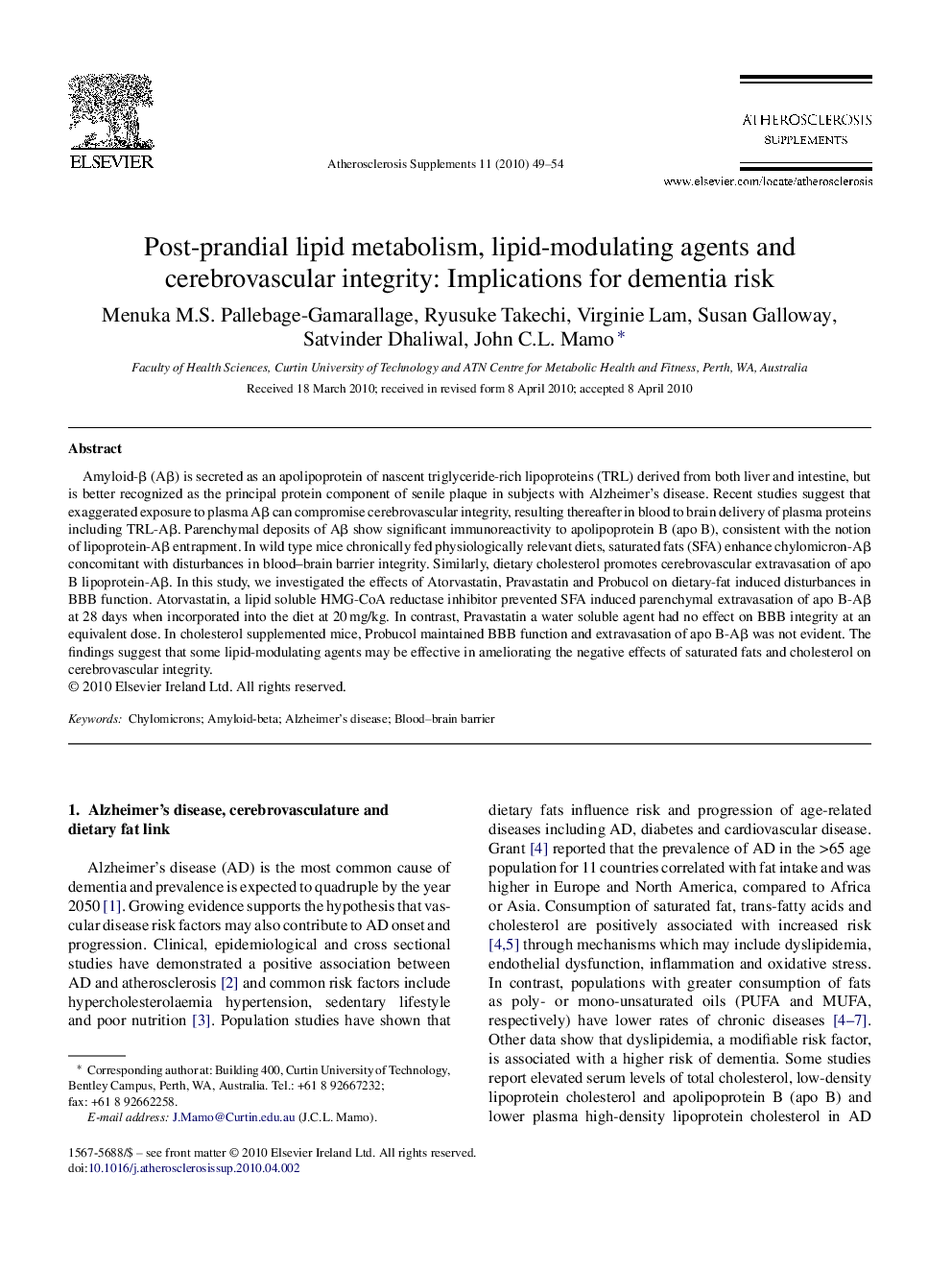| Article ID | Journal | Published Year | Pages | File Type |
|---|---|---|---|---|
| 2895704 | Atherosclerosis Supplements | 2010 | 6 Pages |
Amyloid-β (Aβ) is secreted as an apolipoprotein of nascent triglyceride-rich lipoproteins (TRL) derived from both liver and intestine, but is better recognized as the principal protein component of senile plaque in subjects with Alzheimer's disease. Recent studies suggest that exaggerated exposure to plasma Aβ can compromise cerebrovascular integrity, resulting thereafter in blood to brain delivery of plasma proteins including TRL-Aβ. Parenchymal deposits of Aβ show significant immunoreactivity to apolipoprotein B (apo B), consistent with the notion of lipoprotein-Aβ entrapment. In wild type mice chronically fed physiologically relevant diets, saturated fats (SFA) enhance chylomicron-Aβ concomitant with disturbances in blood–brain barrier integrity. Similarly, dietary cholesterol promotes cerebrovascular extravasation of apo B lipoprotein-Aβ. In this study, we investigated the effects of Atorvastatin, Pravastatin and Probucol on dietary-fat induced disturbances in BBB function. Atorvastatin, a lipid soluble HMG-CoA reductase inhibitor prevented SFA induced parenchymal extravasation of apo B-Aβ at 28 days when incorporated into the diet at 20 mg/kg. In contrast, Pravastatin a water soluble agent had no effect on BBB integrity at an equivalent dose. In cholesterol supplemented mice, Probucol maintained BBB function and extravasation of apo B-Aβ was not evident. The findings suggest that some lipid-modulating agents may be effective in ameliorating the negative effects of saturated fats and cholesterol on cerebrovascular integrity.
